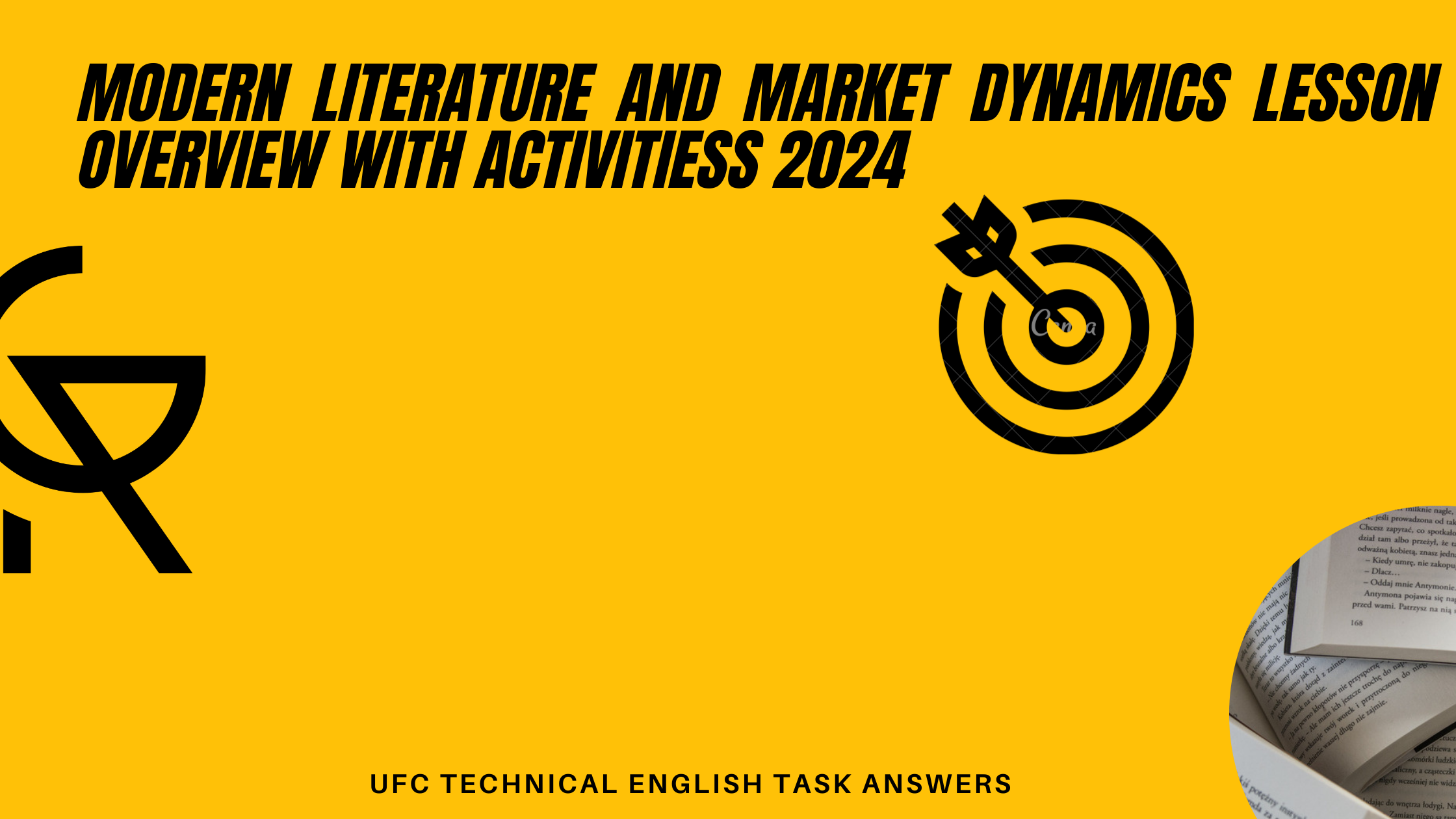Modern Literature and Market Dynamics
In Lesson 01, "Modern Literature and Market Dynamics," the focus is on the amalgamation of economic concepts with modern literary works. The lesson explores how contemporary authors infuse market dynamics into their narratives, reflecting societal shifts and cultural changes. Modern literature, characterized by its departure from traditional styles and emphasis on inner self-exploration, is examined alongside market dynamics, which encompass forces like demand, supply, economic conditions, and government policies shaping market trends. In Text A, an excerpt from F. Scott Fitzgerald's "The Great Gatsby," the social dynamics of a party unfold, offering a glimpse into characters' interactions influenced by economic contexts.
Moving on to Lesson 2, "Classic Literature and Economic Theories," the focus shifts to the intersection of literary narratives from classic literature and fundamental economic principles. The exploration delves into wealth distribution, market dynamics, and economic ideologies' impact on societal norms depicted in literature. Classic literature, defined by its artistic merit and universal themes, is contrasted with major economic theories such as classical economics, Keynesian economics, and behavioral economics. In Text A, an excerpt from George Eliot's "Middlemarch," the protagonist's journey is shaped by economic circumstances, illustrating the profound connection between classic literature and economic theories.

key concepts introduced in Lessons 01 and 02:
|
Term/Concept |
Definition |
|
Modern Literature |
Literary works written in the late 19th and 20th
centuries, characterized by a departure from traditional styles,
experimentation with narrative techniques, and focus on inner
self-exploration. |
|
Market Dynamics |
The forces impacting prices and behaviors of
producers and consumers in a market, including demand and supply, economic
conditions, technological changes, and government policies shaping market
trends and patterns. |
|
Classic Literature |
Works of literature acclaimed for their artistic
merit, universal themes, and profound insights into the human condition,
often recognized for their enduring qualities and influence on culture and
literature. |
|
Economic Theories |
Frameworks for analyzing resource distribution and
utilization, encompassing principles about how economies operate, including
classical economics, Keynesian economics, and modern trends like behavioral
economics. |
|
Wealth Distribution |
The way resources, including income and assets, are
allocated among individuals or groups in a society, reflecting economic
disparities and influencing societal norms and values. |
|
Intersection of Literature and Economics |
The exploration of the connections between literary
narratives and economic principles, revealing the profound influence of
economics on societal norms and personal values depicted in literature. |
Question 1: Modern Literature and Market Dynamics
A. Comprehension
- What is the primary focus of "Modern Literature and Market Dynamics"?
- A. Traditional writing styles
- B. Inner self and consciousness
- C. Market dynamics in literary works
- D. Economic conditions
Question 2: The Great Gatsby
B. Inference
- In "The Great Gatsby," how does the social gathering reflect market dynamics, as mentioned in the lesson?
- A. The characters discuss economic theories explicitly.
- B. Characters engage in economic transactions during the party.
- C. The characters' lifestyles and interactions reflect societal and economic changes.
- D. The party setting represents a traditional literary style.
Question 3: Classic Literature and Economic Theories
C. Understanding
- According to the lesson on "Classic Literature and Economic Theories," what is the defining characteristic of classic literature?
- A. Widely recognized outstanding or enduring qualities
- B. Experimental narrative techniques
- C. Exclusive focus on inner self and consciousness
- D. Strong emphasis on economic ideologies
Question 4: Middlemarch
D. Analysis
- In the excerpt from "Middlemarch," how does Tertius's choice of a medical education relate to economic factors, as suggested by the lesson?
- A. Tertius's choice aligns with classical economic principles.
- B. Tertius's guardians object to his pursuit due to economic downturns.
- C. Economic constraints influence Tertius's career path.
- D. Tertius's pursuit reflects behavioral economics insights.
Question 5: Economic Theories (Major Trends)
E. Application
- Which economic theory, as outlined by N. Gregory Mankiw, might align with the character Lucille's statement in "The Great Gatsby" about always having a good time?
- A. Classical economics
- B. Keynesian economics
- C. Behavioral economics
- D. Modern economic trends
here are the answers to the tricky QCM based on the provided context:
Question 1: Modern Literature and Market Dynamics
A. Comprehension
- What is the primary focus of "Modern Literature and Market Dynamics"?
- Correct Answer: C. Market dynamics in literary works
Question 2: The Great Gatsby
B. Inference 2. In "The Great Gatsby," how does the social gathering reflect market dynamics, as mentioned in the lesson?
- Correct Answer: C. The characters' lifestyles and interactions reflect societal and economic changes.
Question 3: Classic Literature and Economic Theories
C. Understanding 3. According to the lesson on "Classic Literature and Economic Theories," what is the defining characteristic of classic literature?
- Correct Answer: A. Widely recognized outstanding or enduring qualities
Question 4: Middlemarch
D. Analysis 4. In the excerpt from "Middlemarch," how does Tertius's choice of a medical education relate to economic factors, as suggested by the lesson?
- Correct Answer: C. Economic constraints influence Tertius's career path.
Question 5: Economic Theories (Major Trends)
E. Application 5. Which economic theory, as outlined by N. Gregory Mankiw, might align with the character Lucille's statement in "The Great Gatsby" about always having a good time?
- Correct Answer: C. Behavioral economics






